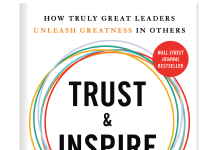Rising patient demand and worsening shortages of clinical workers have made talent acquisition one of the most important—and difficult—issues facing health-care organizations today. As hospitals and health-care providers around the country know first-hand, health-care workforce supply isn’t keeping pace with hiring demand, leading to a so-called “war for talent.”
Faced with these challenges, many health-care organizations are turning to workforce solutions companies that provide Managed Services Programs, or MSP. These workforce solutions companies offer integrated and strategic support to help health-care organizations in recruiting and hiring both their contingent and permanent workforce. In addition, a high-quality MSP can offer advanced solutions for most of an organization’s workforce challenges, thereby streamlining processes and creating cost savings.
But what can the health-care provider do to best position itself for success in working with an MSP team? Here are some tips for getting more out of your MSP partnership:
1. Immerse MSP in your culture: Once you select an MSP provider, its first order of business will be to take a deep dive into your company’s culture and workforce operations, and prepare for any needed change management activities and communication. Some organizations will have the MSP do a formal assessment for this purpose. Health-care providers that welcome this initial step will enjoy a stronger and more successful relationship with their MSP provider, allowing it to get to know key team members, business objectives, operational model, and more. Working with an MSP is much more of a partnership than a typical client/vendor relationship. By treating your MSP as a member of your team, and creating a free-flowing exchange of ideas, the MSP will gain valuable insights into your organization that will enable the MSP to develop more valuable solution recommendations.
2. Share your data: Data offers one of the best ways to get an accurate picture of your workforce challenges. By making such information readily available to the MSP, health-care providers will enable the MSP to offer informed workforce solutions. The MSP will want to look at your data on such factors as staff vacancy rates, time to hire, nurse-to-patient ratios, permanent vs. contingent labor, patient census trends, use of float pools, and so on. When the MSP has a more statistical view of your workforce, it can develop a strategic plan tailored to your organization’s specific needs. In addition, a quality MSP will bring an industry-wide view, with knowledge of best practices and strategies that can be statistically compared with your data. This can provide valuable insights that could lead to more cost-effective and efficient strategic decisions going forward. For instance, if your nurse attrition rate is higher than national averages, it could mean you need to adjust your screening and hiring practices to ensure better skill alignment and cultural fit.
3. Set realistic key performance indicators: Once data gathering and analysis is complete, your MSP partner will work with you to develop a strategic workforce plan. This will include setting key performance indicators (KPIs) that each party—the MSP and the health-care organization—agree to carry out to meet shared objectives. KPIs are quantifiable measures that can be used to gauge or compare performance. For example, one of the KPIs for the MSP provider may be reaching a certain fill rate for a new ICU your hospital is opening in 30 days. To achieve that goal, the health-care provider’s KPI may stipulate making hiring decisions on ICU nurse candidates within a short window—perhaps only two days. In setting up the KPIs, remember to keep them realistic. This will lead to greater success in addressing your workforce challenges in the most timely, efficient, and cost-effective manner possible.
Dan White is president of Strategic Workforce Solutions at AMN Healthcare, an innovator in health-care workforce solutions and staffing services to health-care facilities across the nation. The company provides access to a comprehensive network of quality health-care professionals through its recruitment strategies and breadth of career opportunities. AMN delivers managed services programs, health-care executive search solutions, vendor management systems, recruitment process outsourcing, predictive modeling, medical coding and consulting, and other services. Clients include acute-care hospitals, community health centers and clinics, physician practice groups, retail and urgent care centers, home health facilities, and other health-care settings. For more information, visit http://www.amnhealthcare.com.




